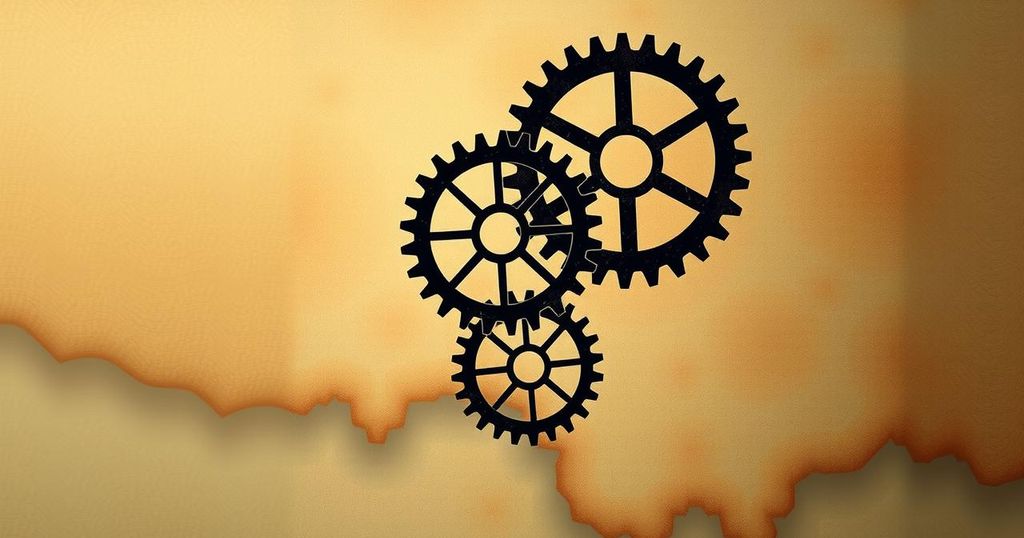Russia and Iran have a complex relationship rooted in historical rivalry, which has transitioned into a strategic alliance, particularly in military and economic contexts. The recent signing of a comprehensive pact aims to deepen cooperation amid geopolitical shifts, despite lingering mistrust and political challenges. Both nations must navigate historical grievances while addressing current regional pressures to solidify their partnership further.
Moscow and Tehran share a complex and often tumultuous history despite their current strategic alliance. Russian President Vladimir Putin is set to meet with Iranian President Masoud Pezeshkian for the signing of a broad pact that marks a new chapter in their partnership. This agreement, termed a “comprehensive strategic partnership,” comes in the context of geopolitical changes, particularly with the inauguration of President-elect Donald Trump, who has indicated a firmer approach towards both Ukraine and Iran.
Historically, Russia and Iran have been rivals, with significant conflict occurring during the 18th and 19th centuries that resulted in significant territorial losses for Persia. The early 20th century saw Russian troops occupying parts of Iran. Cold War dynamics amplified tensions when Iran aligned with the West under the Shah, and after the 1979 Revolution, Ayatollah Khomeini labeled the U.S. the “Great Satan” and the USSR the “Lesser Satan.” However, relations began to improve following the Soviet Union’s collapse in 1991, turning Russia into a key ally and economic partner.
The two nations found common ground as they collaborated in support of Syrian President Bashar Assad amid his ongoing civil war. Iran’s military efforts and Russia’s air campaign began in 2015 secured Assad’s hold on much of the country. However, with renewed focus on Ukraine from Moscow and increasing pressures on Tehran, this partnership has faced challenges, particularly following recent upheavals in Syria.
Western countries have pointed to military cooperation between Moscow and Tehran, speculating on secretive arms deals that align with Russia’s military interventions in Ukraine. Observers note that the Iranian government parallels Putin’s narratives about the conflict while seeking financial support from Russia amid its own economic struggles. Russia’s limits on providing modern defense technology to Iran have also raised concerns in Tehran, particularly regarding their military capabilities in light of Israeli threats.
Despite official affirmations of partnership, historical grievances lead to lingering mistrust among Iranians regarding Russia’s intentions. The suggestion of simultaneous cooperation with Israel has equally provoked unease. Recent internal dissent within Iran’s Revolutionary Guard highlights this discontent, with high-ranking officials expressing frustration over Russia’s role in Syria and its contributions to Iran’s regional challenges. The future of the Russian-Iranian alliance remains to be seen as these dynamics evolve.
The relationship between Russia and Iran is marked by a long-standing rivalry and a shared history of conflict, particularly during the 18th and 19th centuries when Russia expanded into territories previously under Persian control. Post-Soviet interactions have shifted towards collaboration, particularly in the face of shared geopolitical interests against Western sanctions and military challenges. In recent history, both countries have united albeit reluctantly in supporting the Assad regime during the Syrian Civil War, highlighting their realpolitik approach to international relations. The evolving security landscape and economic considerations continue to shape their alliance.
In conclusion, while Russia and Iran have cultivated a strategic partnership to counterbalance Western influence, historical antagonisms and ongoing regional tensions complicate this alliance. Their cooperation in military and economic spheres reflects mutual interests, yet underlying suspicions and historical grievances pose challenges. The future trajectory of their relationship will depend on how effectively they navigate these intricacies amid changing global dynamics.
Original Source: apnews.com






